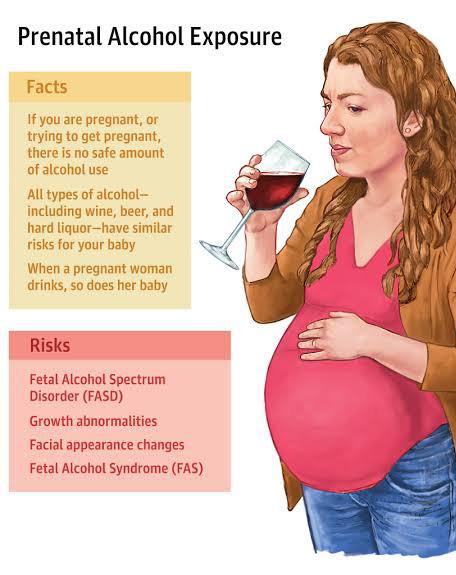
3 minute read
Fetal Alcohol Spectrum Disorder
By Moses Njomo
The discovery of pregnancy comes with mixed reactions of elation and anxiety of what to expect.
Advertisement
This is followed by numerous questions: When to start a pre-natal clinic? What to eat and what to drink.
When it comes to alcohol consumption, there is a common public misconception that drinking during pregnancy is safe depending on the type and quantity of alcohol, or timing during pregnancy.
Dr. Mary Waiyego, Neonatologist, KNH, explains that alcohol consumption could be fatal to the foetus especially in the first trimester during organ formation.
According to Dr. Waiyego, FASD (Fetal Alcohol Spectrum Disorder) is a range of disorders that can affect babies who are born to mothers that consumed alcohol during pregnancy.
It can cause a range of developmental, cognitive, and behavioral problems, which can appear at any time during childhood and last a lifetime. The most profound effects of prenatal alcohol exposure are brain damage and the resulting impairments in behavioral and cognitive functioning.
No lab test can prove a child has FASD. Dr. Waiyego explains that diagnosis is done after the delivery of the child. To diagnose FASD, doctors look for unusual facial features, lower-than-average height and weight, small head size, problems with attention and hyperactivity, and poor coordination. They also try to find out whether the mother had a history of drinking.
Unfortunately, there is no cure for FASDs, but research shows that early interventional treatment services can improve a child’s development and outlook.
According to the Global Prevalence of Fetal Alcohol Spectrum Disorder among Children and Youth in the General Population in 2012, The prevalence of FASD in Kenya is 6 out of 1,000 population.
There are many types of treatment options, including medication to help with some symptoms, behavior and education therapy, parent training, and other alternative approaches. No one treatment is right for every child. Good treatment plans will include close monitoring, follow-ups, and changes as needed along the way. Dr. Waiyego concludes that FASDs are 100% preventable. The bottom line is that the mother must stop using alcohol before getting

pregnant.
She reiterates that no amount of alcohol is safe. A woman should stop drinking immediately after she knows that she is pregnant, or if she is addicted to alcohol, she needs to see a doctor for immediate intervention.
The intern’s experience
By Barbara Otieno

Leakey Kebaso
PHOTO| COURTESY
Meet: Leakey Kebaso
Department: Biomedical Department
Tasks: Collaborative Installation, maintenance (both preventive and curative) and provision of technical support for the biomedical equipment
Three things you have learned about KNH? - Implementation of GEMBA
Kaizen; 5 pillars sort, set in order, shine, standardise and sustain are notable in every work space you enter in KNH. - Digital record keeping - Customer Service
How has the internship added value? With the theoretical and practical knowledge i have gained, my confidence in the biomedical engineering practice has been elevated.
Most memorable moment at KNH? When I got to learn and take part in the repair of the Linear accelerator, machine used in cancer treatment.
Your five year career plan after graduation? Iam planning to advance my studies obtain a Masters Degree and look for other internship opportunities to improve skills and thereafter look for permanent employment.








